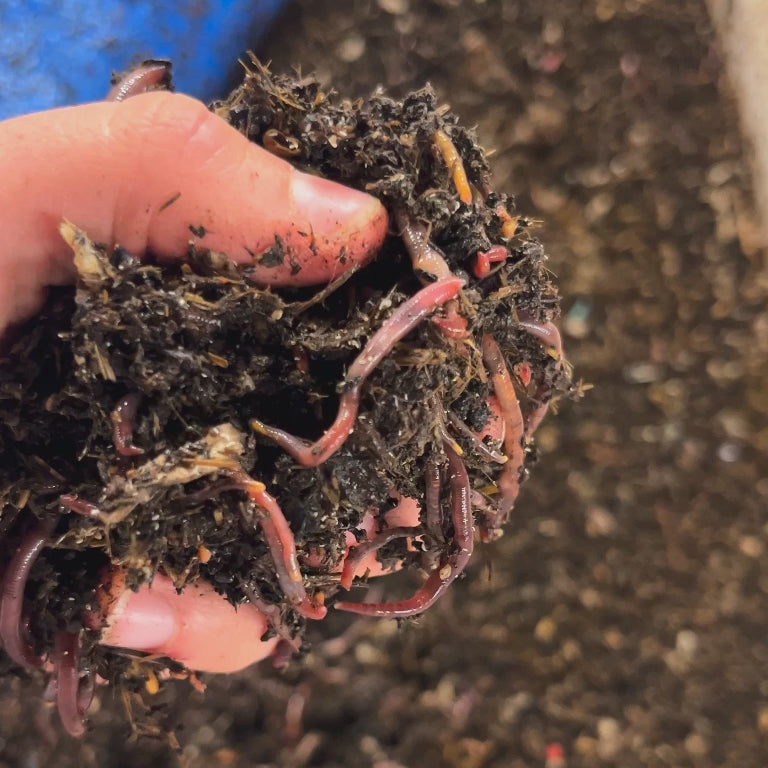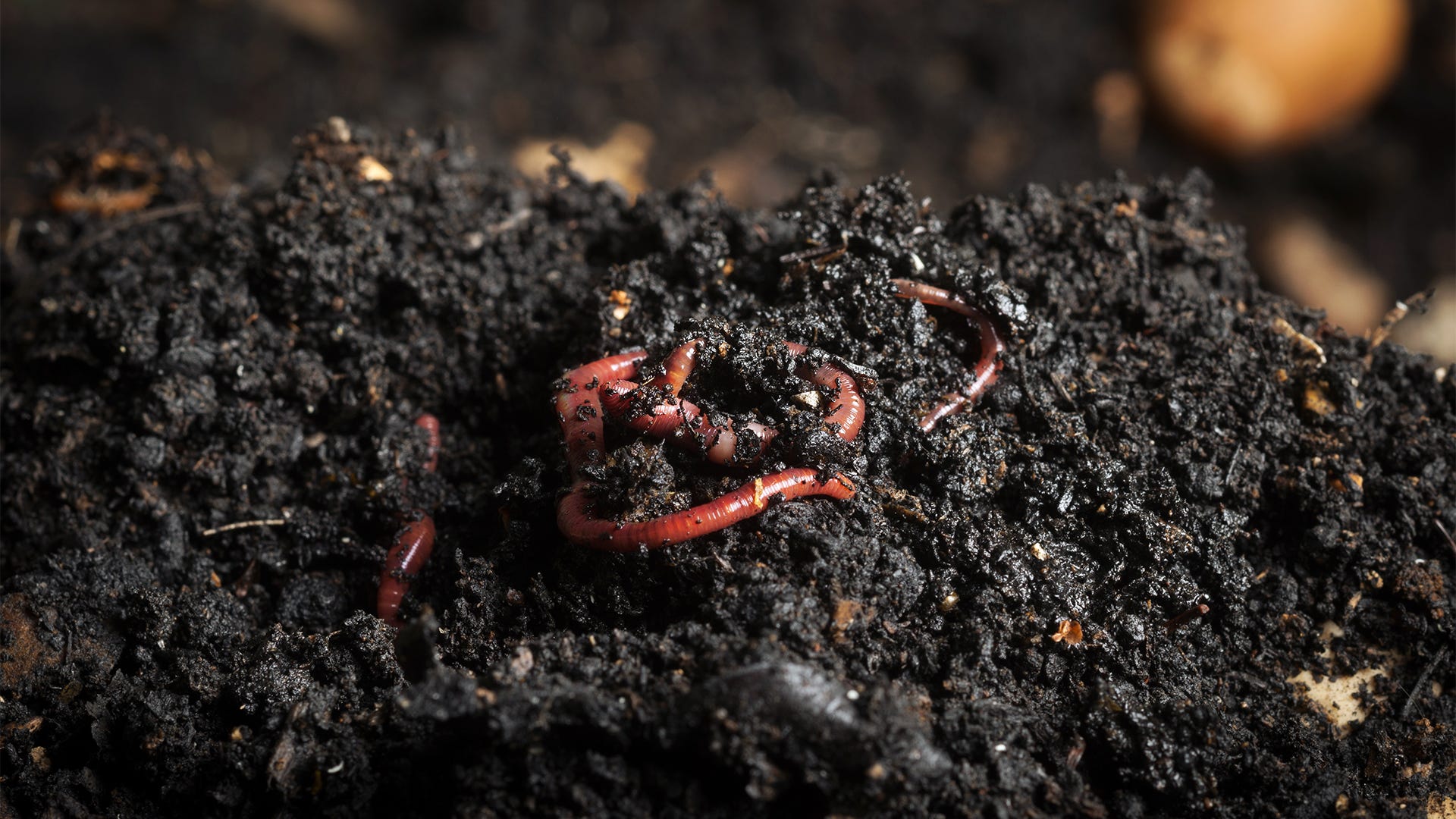Utilizing the Power of Red Wiggler Composting: A Comprehensive Appearance at the Environmental and Agricultural Conveniences of This All-natural Waste Reduction Technique
The method of red wiggler composting stands for an engaging junction of environmental stewardship and farming technology, using a sustainable remedy to the expanding challenges of waste administration and dirt degradation. With the all-natural process of vermicomposting, organic waste is changed into an important resource that not only enriches dirt however additionally adds to a significant decrease in garbage dump contributions and greenhouse gas emissions. As we check out the diverse benefits of this technique, we uncover just how it can reshape farming techniques and advertise eco-friendly recognition, prompting a more detailed exam of its possible influence on our ecosystems and communities.
What Are Red Wiggler Worms?
Red wiggler worms, clinically referred to as Eisenia fetida, are a types of earthworm especially adapted for composting and natural waste malfunction. These worms grow in the nutrient-rich atmosphere of disintegrating natural matter, making them suitable for vermicomposting systems. Growing to a length of roughly three to four inches, red wigglers are identified by their reddish-brown coloration and distinct banding patterns along their bodies.
Unlike other earthworm species, red wigglers like to occupy the upper layers of dirt and natural particles, where oxygen degrees are greater and food resources are bountiful. Their physiological adjustments allow them to process organic products successfully; they have a well-developed digestion system that allows them to transform waste into nutrient-rich castings, usually described as "black gold" in gardening and farming contexts.
Eisenia fetida plays an essential role in the ecosystem by promoting the decay procedure, enhancing soil structure, and advertising microbial task. Offered their distinct characteristics and ecological significance, red wiggler worms have come to be a central part in sustainable waste administration practices and organic gardening efforts, adding substantially to environmental health and wellness.
Advantages for Soil Health And Wellness
The incorporation of red wiggler worms in composting systems offers substantial benefits for soil health and wellness. These worms play a crucial function in the disintegration procedure, damaging down raw material into nutrient-rich vermicompost. This all-natural plant food boosts dirt structure, aeration, and water retention, adding to an extra beneficial environment for plant development.
Vermicompost is rich in essential nutrients such as potassium, nitrogen, and phosphorus, which are important for plant growth (Red Wiggler Composting). The visibility of advantageous bacteria in vermicompost additionally promotes soil wellness by enhancing nutrition accessibility and reducing soil-borne pathogens. This dynamic interaction cultivates a robust soil ecosystem that supports lasting farming methods
Furthermore, red wigglers help with the formation of humus, a stable organic issue that boosts dirt fertility and strength. This enhanced organic web content not just enhances dirt structure however likewise improves its capacity to withdraw carbon, mitigating climate modification impacts.
Including red wiggler composting right into farming systems can, for that reason, lead to much healthier dirts, greater crop returns, and enhanced sustainability. As a result, welcoming this natural waste reduction approach can produce profound benefits for both the atmosphere and agricultural performance.
Effect on Waste Reduction
Including red wiggler worms into composting systems considerably reduces waste, changing natural materials that would otherwise add to land fills into useful compost. This technique, referred to as vermicomposting, efficiently refines cooking area scraps, backyard waste, and various other eco-friendly materials, causing a substantial decline in the volume of waste sent out to garbage dumps. According to the Environmental Protection Agency, natural waste consists of a considerable portion of landfill components, creating damaging greenhouse gases as it decays anaerobically.
By using red wigglers, a very efficient composting representative, families and companies can draw away a significant quantity of natural waste from these garbage dumps. Each extra pound of red wigglers can process and take in regarding half an extra pound of natural waste daily, bring about a remarkable reduction in general waste generation.
In addition, the application of vermicomposting supports local waste monitoring efforts and advertises a round economy, where waste is changed right into a source. As communities progressively embrace this practice, the collective impact on waste decrease becomes noticeable, cultivating an extra lasting setting and motivating liable waste management methods. Welcoming red wiggler composting not only minimizes waste issues yet also improves area recognition about sustainable living.
Enhancing Agricultural Practices
Using red wiggler worms in farming practices can considerably boost soil wellness and plant productivity. These worms play an essential function in the composting process, breaking down natural matter right into nutrient-rich vermicompost. This natural plant food enhances dirt framework, water, and oygenation retention, which are vital for durable plant development.
Additionally, the castings generated by red wigglers are abundant in vital nutrients, such as potassium, nitrogen, and phosphorus, advertising much healthier plants with greater returns. The microbial activity promoted by these worms likewise adds to a growing dirt ecosystem, increasing biodiversity and resilience versus illness and insects.

In addition, making use of vermicompost can improve dirt pH degrees, making nutrients extra available to plants. Red Wiggler Composting. Therefore, farmers can grow much healthier crops while at the same time adding to dirt preservation efforts, ultimately developing a much more sustainable farming future
Getting Began With Composting
The key ingredient in red wiggler composting is organic waste, which can include kitchen area scraps, like it backyard waste, and paper products. This balance cultivates an ideal setting for red wigglers, which are the essential organisms in this composting approach.
Selecting a proper composting system is similarly important. Worm bins can be made for indoor or outside use, and they ought to offer appropriate drainage and aeration. It is encouraged to start with a small number of worms-- approximately one pound of red wigglers for every single one extra pound of waste generated once a week.

Final Thought

The practice of red wiggler composting stands for a compelling crossway of ecological stewardship and farming innovation, supplying find this a sustainable service to the growing obstacles of waste monitoring and soil degradation.In addition, the application of vermicomposting supports regional waste administration efforts and advertises a round economic climate, wherein waste is changed into a source. As areas significantly embrace this practice, the collective impact on waste decrease comes to be evident, fostering an extra sustainable setting and motivating accountable waste administration techniques. The primary active ingredient in red wiggler composting is organic waste, which can consist of kitchen scraps, lawn waste, and paper products.In summary, red wiggler composting offers a sustainable option for natural waste administration, producing nutrient-rich vermicompost that dramatically improves soil wellness.